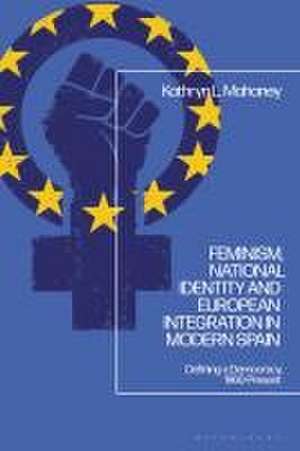Feminism, National Identity and European Integration in Modern Spain: Defining a Democracy, 1960-Present
Autor Dr Kathryn L. Mahaneyen Limba Engleză Hardback – 15 mai 2024
Preț: 510.17 lei
Preț vechi: 731.06 lei
-30% Nou
Puncte Express: 765
Preț estimativ în valută:
97.63€ • 100.86$ • 81.26£
97.63€ • 100.86$ • 81.26£
Carte tipărită la comandă
Livrare economică 25 martie-08 aprilie
Preluare comenzi: 021 569.72.76
Specificații
ISBN-13: 9781350195103
ISBN-10: 1350195103
Pagini: 224
Ilustrații: 10 bw illus
Dimensiuni: 156 x 234 mm
Greutate: 0.49 kg
Editura: Bloomsbury Publishing
Colecția Bloomsbury Academic
Locul publicării:London, United Kingdom
ISBN-10: 1350195103
Pagini: 224
Ilustrații: 10 bw illus
Dimensiuni: 156 x 234 mm
Greutate: 0.49 kg
Editura: Bloomsbury Publishing
Colecția Bloomsbury Academic
Locul publicării:London, United Kingdom
Caracteristici
Convincingly argues that the interconnectedness of Spain with Europe means that historians must look at both to get a full understanding of either
Notă biografică
Kathryn L. Mahaney is Postdoctoral Researcher at the University of Helsinki, Finland.
Cuprins
List of IllustrationsIntroduction1. Sección Femenina and the Struggle for Women's Rights in the Postwar West2. Re-examining the Feminist 'Triumphs' of Transition-Era Spain3. How Domestic Conflict and Global Feminist Networks Affected Late 20th-Century Spanish Politics4. Domestic Violence, Gender Equality, and the Ongoing Struggle to Define Post-Francoist Democratic Spain5. Moving into the 21st CenturyConclusionBibliographyIndex
